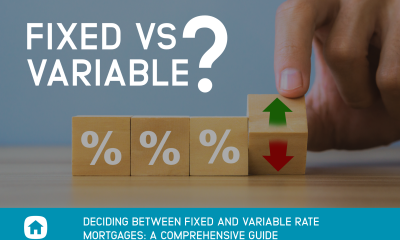TORONTO — If you haven’t thought about the pension funds you’ve racked up at previous jobs for a while, it might be a good idea to check in.
Not keeping in touch with plan administrators at those old workplaces could see you missing out on important decisions, and in some cases even lose you money.
While there isn’t reliable data on just how many people are disconnected from their pensions, the federal government says the number could be rising with people switching jobs more often, qualifying for pension plans faster, retiring abroad more often, and not updating their mailing address because of increased reliance on online accounts.
Administrators not being able to find recipients is certainly a problem, even if the amounts owing can often be small, said Todd Saulnier, chair of the national policy committee at the Association of Canadian Pension Management.
“For sure it is an issue. It’s an issue with all the plan sponsors and administrators.”
Ontario Teachers’ Pension Plan, for example, has about 30,500 members that it can’t locate. And while the Canadian government hasn’t put a dollar amount to the problem, a difficult task with 10 separate regulatory regimes, the U.K. estimated there was about $682 million in unclaimed pensions in that country when it rolled out a pension-finding database a few years ago.
The industry does use a variety of methods to try and track people down, including through Equifax, search firms and the CRA, but in the last case in particular, people don’t tend to respond due to suspicions they’re being scammed, said Saulnier.
“The success rate is pretty darn close to zero…how would you feel if you got a letter from the CRA saying you’re owed money?”
While pension plans are responsible for tracking you down, and funds are generally safe until you need them, there are reasons to reach out to administrators yourself.
If you want to take a cash payout on the pension, you often have to do so before you’d qualify for the pension itself.
“That delay of not contacting could close some option they otherwise would have had,” said Saulnier.
If the pension is the increasingly common defined-contribution type, then you also need to decide if you want to manage it yourself or keep it with the company. If you’re no longer an employee, you may be charged higher management fees.
“It’s better to know where it is. Maybe you’re comfortable keeping it with your old employer, maybe you’d prefer to have it closer to home and under your own control. Each individual has to figure that out.”
Depending on the province, if administrators can’t find beneficiaries the funds could be transferred to unclaimed property divisions, which could then eventually end up in general government revenue. That’s the case in some circumstances in Quebec and Alberta, while in British Columbia it only happens if the pension plan is terminated.
Federally regulated pensions could also start transferring unclaimed funds, in this case to the Bank of Canada, if proposed changes go forward.
If you want to track down an old pension, from jobs you worked at for either weeks or years, the most straightforward place to start is to call up the human resources or pension administrator at your old company.
If the company’s been taken over, gone bankrupt, or otherwise hard to find, you can try getting in touch with the provincial regulator.
Some provincial regulators, such as the Financial Services Commission of Ontario, also have databases you can search for the right contact information, and will be making more changes once a new regulatory body takes over in June. Ontario also now requires plan administrators to send out pension statements every two years, so if you have an Ontario-based pension, but haven’t received a statement, they may not know where you are.
A surviving spouse should be able to get details on old pensions as well, because they often have the same rights to information. Other beneficiaries might have a tougher time jumping through privacy and legal hoops, but human resources will likely help out, said Saulnier.
“I’m sure HR would be willing to do a certain amount of digging from that perspective, particularly if it allows them to clean up their records.”
There’s also a chance that you didn’t qualify for a pension, especially if the job was in the 1980s or earlier, but more recently people vest into the pension fairly quickly or right away.
If you’re soon leaving a job, the biggest decision on a pension will be on whether or not to take a payout and what to do with it, said Ayana Forward, a certified financial planner in Ottawa.
She said the sometimes large sums means you might want to be wary of commission-based advisers who want to sell you a place to park it, while people should also remember to keep any pension paperwork when you leave.
“Have a file with all of that paperwork. It seems pretty simple, but not a lot of people do that.”
Ian Bickis, The Canadian Press

 Buying a Home5 years ago
Buying a Home5 years ago
 Credit6 years ago
Credit6 years ago
 Business4 years ago
Business4 years ago
 5 Mortgage Secrets7 years ago
5 Mortgage Secrets7 years ago
 Buying a Home6 years ago
Buying a Home6 years ago
 5 Mortgage Secrets6 years ago
5 Mortgage Secrets6 years ago
 News12 months ago
News12 months ago
 Business4 years ago
Business4 years ago




